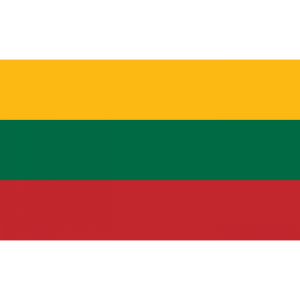Language/Lithuanian/Culture/Festivals-and-Celebrations
As a Lithuanian language teacher with 20 years of experience, I always make sure to incorporate interesting cultural information into my lessons. One of the most exciting aspects of Lithuanian culture is the abundance of festivals and celebrations that take place throughout the year. In this lesson, we will explore some of the most important events in the Lithuanian calendar.
Major Festivals and Celebrations
Užgavėnės
Užgavėnės, also known as Shrovetide, is a winter festival celebrated in Lithuania and other parts of Eastern Europe. It usually falls in February or March and is a time of great merrymaking before the sombre period of Lent.
During Užgavėnės, people dress up in costumes and masks and walk in parades, often carrying effigies of the "Lašininis" or "Kanapinis" - two mythical figures representing the struggle between winter and spring. Traditional foods like pancakes and "kastinys" (sour cream butter) are also consumed.
Velykos
Velykos, or Easter, is a major Christian holiday celebrated across Lithuania. The date of Easter varies each year, but it is usually celebrated in late March or early April.
Lithuanians celebrate Velykos with a variety of traditions, including painting eggs with intricate designs and bringing them to be blessed at church. Traditional foods like "kugelis" (potato pudding) and "šaltibarščiai" (cold beet soup) are also enjoyed.
Joninės
Joninės, also known as Midsummer's Eve, is a summer solstice festival celebrated on the night of June 23rd. It is similar to other Midsummer's Eve celebrations in Northern Europe, but has a uniquely Lithuanian flavour.
During Joninės, people gather around bonfires and sing and dance late into the night. It is also customary to float wreaths made of flowers and herbs on nearby bodies of water. Traditional foods like "šašlykai" (barbecued meat skewers) and "šaltibarščiai" are also eaten.
Lietuvos Valstybės diena
Lietuvos Valstybės diena, also known as Lithuanian State Day, is celebrated on February 16th and commemorates the establishment of the first Lithuanian state in 1918.
On this day, people gather in central squares and attend flag-raising ceremonies. Concerts, parades, and speeches also take place. Traditional foods like "cepelinai" (potato dumplings) and "kastinys" are often eaten during the festivities.
Conclusion
These are just a few of the many festivals and celebrations that take place in Lithuania. By learning about these events, you can gain a better understanding of Lithuanian culture and its people. As always, I encourage you to engage with native Lithuanian speakers and immerse yourself in the language and culture as much as possible.
| Lithuanian | Pronunciation | English |
|---|---|---|
| Užgavėnės | oo-zh-gah-VEN-ess | Shrovetide |
| Velykos | vehl-YKohs | Easter |
| Joninės | yoh-NEEN-ess | Midsummer's Eve |
| Lietuvos Valstybės diena | LYEH-too-vohs VAHL-stuhb-ays dee-NAH | Lithuanian State Day |
- Užgavėnės is a winter festival celebrated in Lithuania and other parts of Eastern Europe
- Velykos is a major Christian holiday celebrated across Lithuania
- Joninės is a summer solstice festival celebrated on the night of June 23rd
- Lietuvos Valstybės diena commemorates the establishment of the first Lithuanian state in 1918
- Lithuanian festivals and celebrations
- Lithuanian culture and traditions
- Lithuanian holidays
Related Lessons
- Film and Television
- Geographic Features and Landmarks
- Music and Dance
- Greetings and Customs in Formal Situations
- Lithuanian Literature
- Outdoor Activities
- Tourism and Leisure Activities
- Transportation and Travel Phrases
- Celebrations and Holidays

